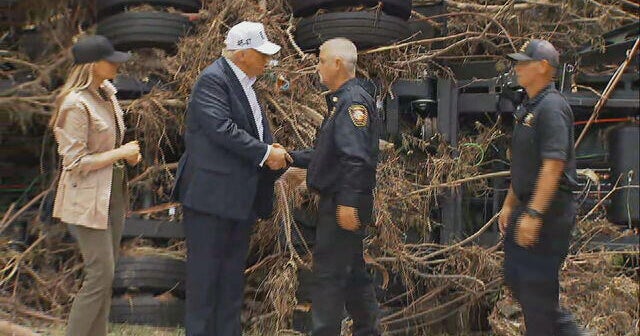Israel’s large strike on Iranian nuclear amenities and prime army commanders in a single day on Friday ignited not solely regional tensions but in addition positioned the regional media on excessive alert.
Israel’s predominant shops have been divided of their protection of the occasion between the technical and army elements and political and strategic evaluation, amid a realisation that what occurred isn’t just a army operation, however a turning level that will redraw the map of clashes within the area.
In the meantime, the media shops throughout the Arab world took into consideration their home political context and worldwide relations, significantly with the US, resulting in some combined positions on the occasion.
Right here is an outline of how the area’s predominant information shops lined the Israel-Iran battle, because it continued to develop on Friday.
Saudi Arabia and Qatar: Deal with political dimensions
Saudi Arabia’s Al Arabiya and Al Hadath relied on headlines similar to “Israeli assault on Iranian amenities” or “Israel bombs Iran”.
The protection was swift and intense, with occasions reported in line with Western and US sources, significantly emphasising the political positions as acknowledged by Saudi Arabian officers.
Sky Information Arabia’s protection was characterised by a balanced tone, utilizing headlines similar to: “Israel strikes Iran”. The channel centered on documenting the details and reporting worldwide reactions, whereas additionally cautiously reporting official Iranian statements.
It additionally included in-depth analyses from political and safety analysts, reviewing potential situations of escalation within the area, whereas being cautious to not overestimate the affect of the strike or pre-emptive reactions.
The web newspaper Asharq Al-Awsat took an impartial method to the occasion, utilizing headlines similar to: “Israel assaults Iran. Tehran vows to retaliate”.
The Saudi newspaper relied on stories from a number of sources, together with official Iranian statements and Western analyses, specializing in the political and army dimensions of the strike, its affect on the nuclear negotiations and the steadiness of energy within the area.
In distinction, the Qatari channel Al Jazeera led its protection with phrases similar to “Israel assaults Iran”.
The channel additionally supplied in depth analytical protection, internet hosting army and strategic consultants to debate the repercussions of the escalation on the Iranian nuclear file and the scenario in Gaza, the place the Israel-Hamas struggle has been raging for round 20 months.
Lebanese press: Political divide and the place on Hezbollah
The Lebanese press appeared divided in its protection, reflecting the inner divide. An-Nahar newspaper headlined: “Unprecedented Israeli assault on Iran, killing the commander of the Revolutionary Guard and nuclear vitality scientists.”
On the similar time, information near Hezbollah lined the information of Israel’s assault on Iran, specializing in the statements of Iranian officers.
Egyptian web sites: Calculated protection counting on companies
Egyptian web sites merely reported the information from worldwide companies below simple information headlines.
Most of them didn’t analyse or undertake clear positions, which appears to be in step with the editorial coverage that tends to keep away from taking sides in complicated regional conflicts.
Israel’s Haaretz: Scepticism and questions
Haaretz, recognized for its crucial perspective in the direction of the safety and political institution, selected a cautious analytical angle.
In its editorial, it steered away from the “tactical victory” narrative and raised questions concerning the feasibility of the strike and its future dimensions.
The newspaper’s analysts questioned whether or not this operation is a prelude to a broader struggle that Israel could not be capable of include, or whether or not it’s merely a tactical transfer to discourage Iran from advancing its nuclear programme.
The newspaper additionally linked the strike to inside tensions in Israel, arguing that Prime Minister Benjamin Netanyahu is “preventing his greatest battle overseas whereas his legitimacy is eroding at residence.”
Yedioth Ahronoth: Army victory and potential retaliation
Yedioth Ahronoth, essentially the most broadly circulated newspaper, adopted a tone that tended to concentrate on the operational elements.
It printed in depth particulars concerning the nature of the strikes, the kinds of weapons used, and the military’s estimates of the losses inflicted on Iran’s army infrastructure.
But it surely additionally didn’t fail to say the challenges forward. Its protection included analyses of the potential for opening fronts within the north with Hezbollah, or within the Crimson Sea by the Houthis, noting “the most important safety alert because the 1973 struggle”.
Jerusalem Submit: Intelligence success, hazard of miscalculations
In its protection, the English-language Jerusalem Submit centered on the “precision of intelligence coordination”, describing the operation as “extra complicated than the assassination of (Iranian nuclear scientist Mohsen) Fakhrizadeh”, stressing that the assault was carried out after months of monitoring and gradual implementation.
But it surely additionally warned that “Israel could have opened a door that can not be simply closed,” and recalled how fragile the house entrance is, particularly in gentle of the declining readiness of the reserve forces and the disaster related to obligatory army service for ultraorthodox Jews.
Instances of Israel: A multi-voice narrative
The Instances of Israel took a extra complete method to information protection. It quoted statements from Israeli and US sources, most notably the assertion that “the US was conscious of the strike, however didn’t really take part”.
It additionally urged that the operation “could have a home electoral affect”, in gentle of Netanyahu’s makes an attempt to regain political momentum within the face of escalating protests associated to the Gaza hostage concern and accusations from the opposition that the nation is embroiled in open confrontations for political functions.
Most Israeli media shops agreed to characterise the occasion as a “pivotal second”, however they differed in studying the value that the Hebrew state may pay.
Whereas some newspapers cheered the safety achievement, others didn’t conceal their concern concerning the repercussions of the strike, whether or not on the Iranian entrance or at residence.
What about Iran?
In Iran, no conventional newspapers are printed on Friday. Saturday can also be a public vacation, marking a serious Shiite spiritual celebration, with not many retailers printing newspapers.
The digital shops, all managed by the Tehran regime, have up to now disseminated solely propaganda.








